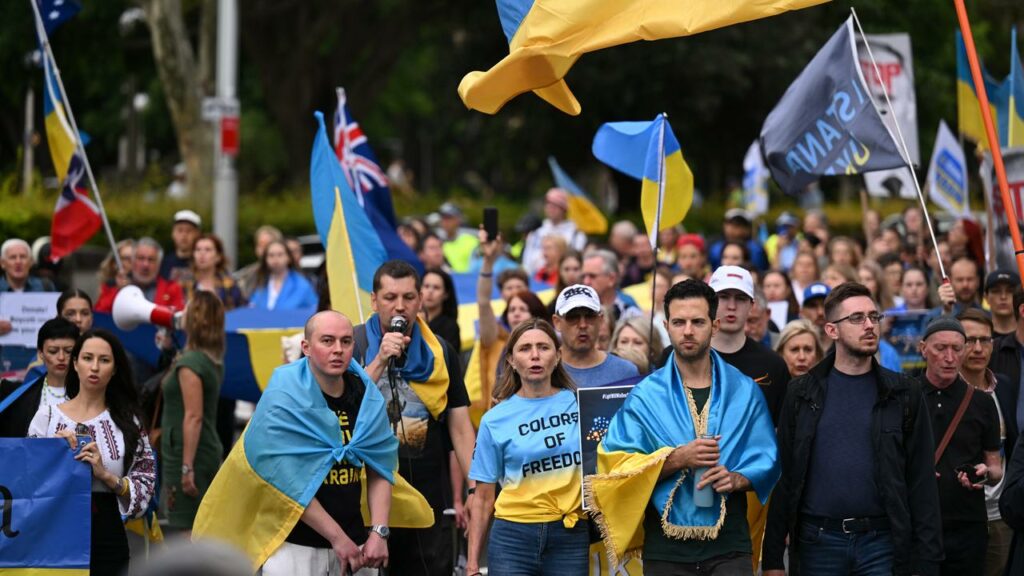Ukrainians urge greater action on Russia propaganda
Andrew Brown |

Ukrainian Australians have called on the federal government to step up efforts to counter Russian disinformation and propaganda on social media platforms.
Australian Federation of Ukrainian Organisations co-chair Kateryna Argyrou told a parliamentary inquiry into foreign interference that Russian propaganda and violent threats online against Ukrainians had intensified since last year’s invasion of Ukraine.
“They’re quite varied, anything from direct death threats through social media, mostly coming through Telegram and Facebook, where certain people, especially community leaders, are targeted and in the most vile way,” she told the committee sitting in Canberra on Friday.
“We’ve had one person that went to the police three times in one week because of all the threats that he was getting, so it’s always evolving.”
Russian propaganda had been able to spread through social media due to a lack of regulation and monitoring, Ms Argyrou said.
Many Russian propagandists had infiltrated areas such as the anti-vaccination movement in order to spread their message.
“First they learn about the ideals and aims of a certain movement, they share those ideals and views, quickly become leaders of that, and then through that they place typical Russian narratives and propaganda,” she added.
Ms Argyrou also expressed concern at politicians airing views that were in line with Russian propaganda.
“We see Australian politicians basically regurgitating the narrative of the Kremlin or pro-Putin propaganda that we as Ukrainians have heard over and over again,” she said.
“When we see Australian politicians regurgitating that, then that’s of great concern to us and we see it as direct foreign influence, because it’s word-for-word Kremlin narratives.”
The inquiry also heard that laws aimed at tackling security concerns linked to social media apps needed to extend beyond TikTok to stop a future “whack-a-mole” situation,
Lindsay Gorman from the Alliance for Securing Democracy told the inquiry that while the Chinese-owned TikTok was an issue, a platform-by-platform approach was not the answer.
“I do not think a platform-by-platform approach is remotely effective, as we’re seeing with TikTok today,” she said.
“If we had this comprehensive framework that we recommended in place years ago, we would have addressed TikTok back in 2019 or 2020, and we will be ready for the next one because it’s absolutely a game of whack-a-mole if we’re taking it platform-by-platform.”
Ms Gorman said similar concerns are emerging about a new app being launched by TikTok’s parent company ByteDance, and addressing issues with TikTok may not cover other platforms yet to emerge.
The federal government has followed the lead of other western countries and banned TikTok from government devices, due to concerns about the between ByteDance and the Chinese government and how data is being used.
TikTok denies it is harvesting sensitive data or is a national security risk.
Ms Gorman said China, along with other authoritarian governments, was using social media to exert influence.
“Social media is best understood as one element in a broader toolkit to influence and interfere in democratic institutions and to control and weaponise the information environment,” she said.
AAP